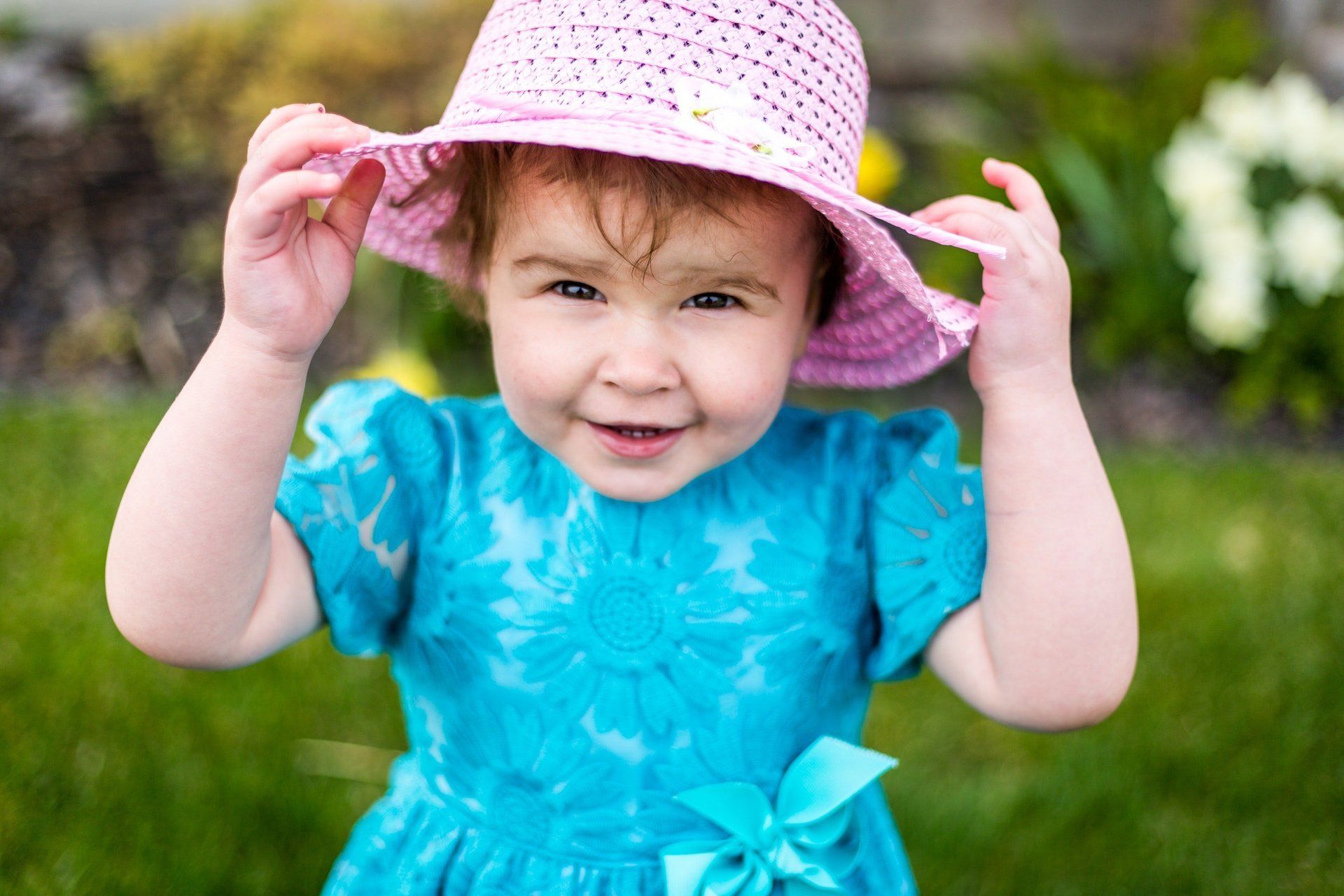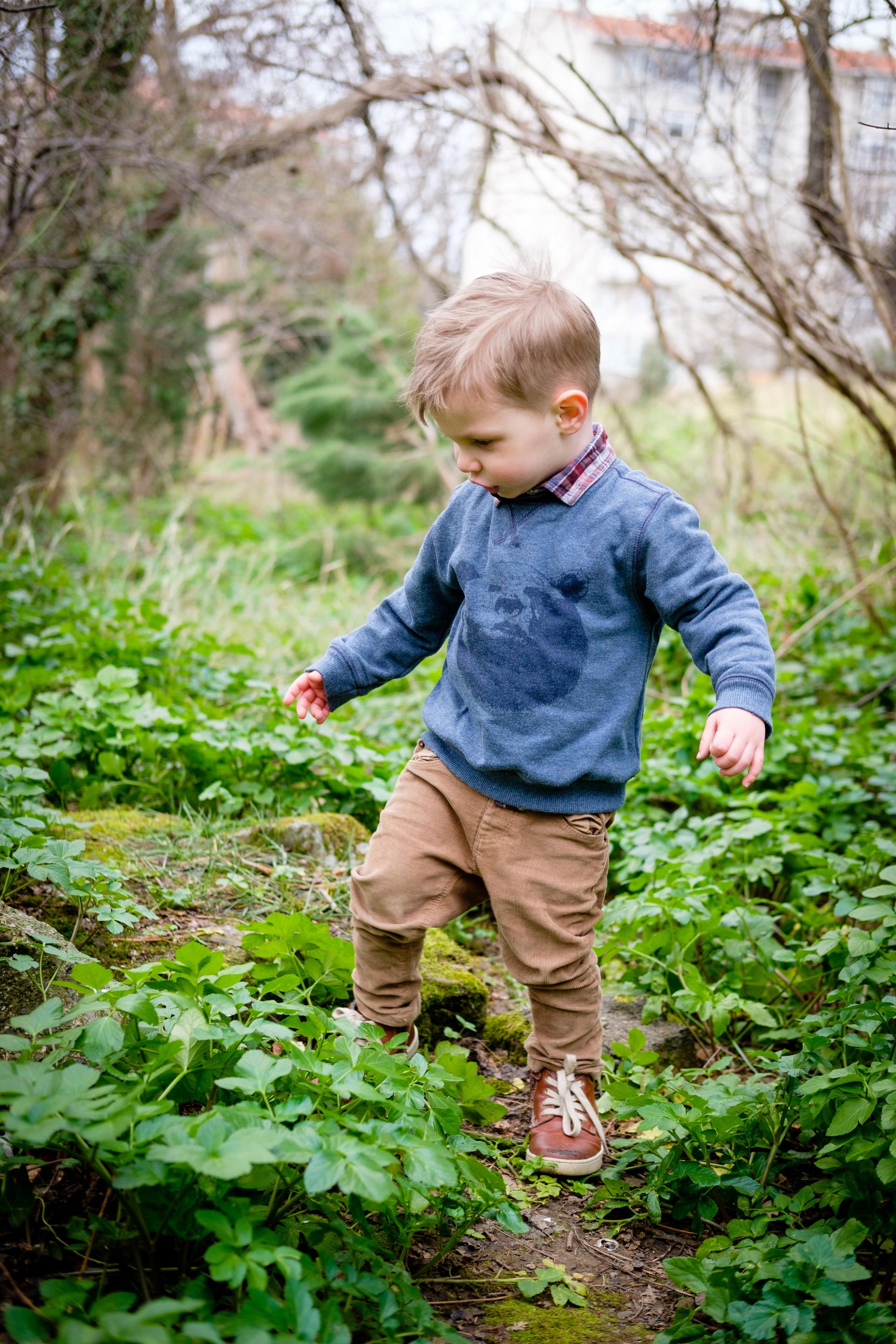Sound Self-Esteem; The Greatest Gift We Can Give Our Children
How to put the 6 key building blocks in place to boost your child's self-esteem
by Dr Hester Bancroft, BSc (Hons) Psych, DCPsych, CPsychol
A child with sound self-esteem accepts themselves for who they are; they can recognise their strengths and their weaknesses, and still feel, overall, positive about themselves. Crucially, having sound self-esteem helps a child develop academically, socially and emotionally and, in this way, gives them the best chance of reaching their full potential in life.
By understanding the six key building blocks to sound self-esteem, and knowing how to put them in place, we, as parents, can help our children go out into the world as happy and secure individuals.
Self-esteem ebbs and flows across time and the situation we find ourselves in. It is always good to keep an eye on where our children’s self-esteem is so that, should we need to, we can put things in place to boost their self-esteem.
There are key indicators we look for when we are assessing where a child’s self-esteem may be:
• They tend to feel (or pretend to feel) emotionally indifferent
Inevitably there are times in life for us all when things don't go planned. When this happens to a child with low self-esteem, however, they can feel overwhelmed by their emotions. This can result in them disconnecting from their feelings and, therefore, when they are asked if they are alright, they can respond with “I don’t care” or “it doesn’t matter”. Sadly, because they can carry an expectation that things don't usually work out for them, they are not surprised when they don't and, to them, it simply confirms what they already 'knew'.
In contrast, a child with sound self-esteem can more readily access and articulate their emotions. In addition, they can talk about, and make sense of, what has happened and more easily bounce back from the situation or event.
• They tend to avoid trying new things
A child with low self-esteem tends to avoid trying new things as they are fearful of failure and/or feel too self-conscious. They can believe that, because they are trying something new, they will stand out or "look stupid". This avoidance can take the form of flat refusal, delaying tactics or melt downs. This can leave parents feeling more and more reluctant to push their child into trying new things for fear of triggering a meltdown.
In contrast, a child with sound self-esteem is willing to attempt new challenges seeing them as interesting and exciting opportunities.
• They can feel unloved or unwanted
A child with low self-esteem can feel unloved or unwanted, even by family or close friends. Because they don’t feel good about themselves, they often do not feel truly worthy of being loved. This can result in them projecting those feelings onto others and then believing people see them as lacking in some way and unlovable.
In contrast, a child with sound self-esteem feels loved and appreciated by their family and friends for who they are.
• They tend to feel unable to deal with a normal level of frustration
As child with low self-esteem tends to hold an expectation that they will fail at most things (and certainly at things outside their comfort zone), they can find it incredibly hard to cope with the normal level of frustration we all have when we are learning something new. They can get angry very quickly and give up trying after a very short period of time. They may be very quick to say things like, "I can't do it" or "It's too hard".
In contrast, a child with sound self-esteem can cope with a normal level of frustration; they have the ability to push through the frustration and keep going.
• They tend to put down their own abilities and talents
A child with low self-esteem can find it very hard to take a compliment. They often do not believe it to be true and can find it embarrassing to have the attention shone on them. Parents may experience their child saying things such as “no I’m not, I’m rubbish” or “you’re just saying that because you’re my Mum/Dad”. In contrast, a child with sound self-esteem can take (and enjoy) a compliment without feeling embarrassment.
• They tend to be quick to blame others for their own shortcomings
A child with low self-esteem tends to be very quick to blame others for things that don’t go well; they can find it very difficult to take responsibility for things that go wrong. This is because it simply feels too much to bear. A parent may experience their child saying things such as “It’s not my fault” or “It wasn’t me”, even when it is clear they had a part to play.
Note: Some children with low self-esteem deal with this by going the other way; they blame themselves for everything (even things that are not their responsibility) and openly criticise themselves. They will say things like “It’s all my fault” or “I always mess up”.
In contrast, a child with sound self-esteem tends to find it easier to acknowledge their mistakes and, with encouragement, can take responsibility for their part in any situation.
• They can be easily influenced by others
A child with low self-esteem tends to be easily influenced by others as they are willing to do whatever it takes to fits in with people around them. Consequently, a child with low self-esteem can be vulnerable to peer pressure as they can lack the ability to say “no”. They can find themselves being drawn into doing things they don't actually want to do or getting themselves into trouble, or even dangerous, situations.
In contrast, a child with sound self-esteem is able to act independently. They feel very able to say "no" to their peers if they feel what they are being asked to do is wrong or dangerous.
Reading through the indicators above, it is easy to see how our self-esteem shapes us all; it affects our happiness, our resolve and our ability to deal with life’s inevitable challenges. We will now explore the six key building blocks to sound self-esteem and look at specific ways to build sound self-esteem in your child.
Building block 1: Constructive modelling (for guidance and inspiration)
Whether we like it or not, we are our children’s most influential role models. They observe our way of being; our compassion towards ourselves and others, our attitude to work, our ability (or inability!) to apologise, our ability to stand up for ourselves and also our ability take time out to have fun and be with our loved ones. All of these things shape our children's understandings of the world and how to be in it. We show them how to be a friend, a parent, a partner or a work colleague. The behaviours they see in us, therefore, profoundly shape their beliefs about what those roles entail and how to be as a human being towards others.
It is incredibly helpful to proactively decide on what you want your child to model from you; those things you want
them to be seeing and then giving thought to any changes you want to make in your behaviours that show them how to ‘be’.
As Robert Fulgham once famously said, “ Don’t worry you children never listen to you; worry they are always watching you!”
Building block 2: Empowering labels (for a sense of worth)
Children do their best to fill the roles we give them (positive or negative) so we need to take care that we give them ‘labels’ we actually want them to live up to! All of us can carry beliefs about ourselves from our childhood through into our adulthood. These beliefs will have come from significant (often well meaning) adults in our lives (parents, teachers or extended family members). They may have told us things about ourselves which, as children, we did not question. Indeed, children simply incorporate these messages into their belief system about who they are (e.g. that they are ‘rude’, ‘shy’ or ‘selfish’ or perhaps ‘good’ or ‘helpful’).
Importantly, when we believe we do something because of our personality we tend to also feel unable to change it. In reality, we can all chose to change our behaviour and learn new ways of being. What is helpful, therefore, is always to talk about your child's behaviour, e.g. “not getting things together until the last minute is really disorganised” rather than the person, e.g. “you are so disorganised”. If you do the latter you are very likely to hear back one day “Come on Mum, you know I’m disorganised, it’s just the way I am!”
For anyone reading this and worrying that they may have given their child a negative label or two, please don’t worry, you can change that belief! Just watch out for your child doing something (even slightly) in the opposite direction and point out that that they are becoming whatever the opposite behaviour is. Sticking with the example of being disorganised, you would simply have to catch them doing something even slightly
organised (e.g. chucking their book bag vaguely near the front door) and state “wow, you're becoming such an organised person!” You will see a slight straightening of the shoulders and a small nod of the head as they happily take on board their brilliance (and a new, empowering belief about themselves!).
Building block 3: Boundaries and routine (for a sense of security)
Research shows that one of the most powerful ways to boost a child's sense of safety and security (a crucial element of self-esteem) is by having good routines and clear boundaries.
It is helpful to think about the structure of your day, and indeed your week, and consider what is working and what isn’t. In particular, identify pinch points when stress is heightened for all, or anyone, in the family. We are living at a time when there are huge pressures for our children to take part in so many different activities. Whilst opportunities to try new things are fantastic (see below) we do also need to be careful to allow for down time. Children (and parents!) really do need time when they are not rushing from one activity to another.
Research also shows that, for all of us, boredom boosts creativity; we want our children to use (and enjoy using) their imagination. We also want them to be comfortable being still and not constantly over stimulated. Having down time scheduled into our routine is an incredibly healthy habit for us all.
Children also benefit hugely from knowing what is expected of them and what they can expect of us in return. Having clear and consistently reinforced boundaries is not only good for our children (boosting their self esteem by helping them feel secure), they also allows us to feel calmer and more in control.
When thinking about our boundaries, it can be helpful for us, as parents, to take some time out to make a boundary list. The boundaries will simply be the behaviours that are no longer acceptable to you. It is important that all adults in the house agree what the boundaries are going to be, so that you have a totally united front (children will spot the 'chink in your armour' very quickly if there is one and won't be afraid to use it!). It is probably also worth saying here that there are no ‘right’ or ‘wrong’ boundaries, what matters is that you have boundaries in place and you reinforce them consistently.
Crucially, we need to remember that our children truly benefit from knowing that we are in charge so they can just get on the very important job of being children. Through having clear routines and consistently reinforced boundaries, the whole family will be calmer, happier and more able to enjoy one another's company.
Building block 4: Fostering of independence (for a sense of capability)
There are many ways we can really boost our children’s emotional intelligence. One of the ways we can do this is by sharing our (cherry picked!) own dilemmas and disappointments with them (as well as the good stuff we more naturally share). Whilst, of course, we need to ensure what we share is appropriate for our child’s age and understanding, it is great to model to our children that we, as our family, share our issues or upset and talk them through.
It is also helpful to get our children to reflect and share what they love and like about their friends. When we reflect on what is important to us in others, we automatically think about whether we behave in that way ourselves. There are key things we all need to do to connect with others; we need to show an interest in others and in their lives, we need to be able to listen to others’ perspectives and we also need to be able to say a heartfelt apology if we upset someone. These are great conversations to have with our children and have them model from us; in this way we can help them develop their social understanding so that they feel socially capable and likeable.
Finally, when supporting our children with any friendship issues it is incredibly helpful to ‘coach’ them rather than ‘rescue’ them. For many of us, when our child is upset, our natural urge is to jump straight in and tell them how they, or you, are going to fix the problem. Rescuing our child in this way is very soothing to them (and us!) but it does not build their resilience or their sense of capability in the way that coaching them does.
When coaching our children, we need to firstly ask questions about where they are right now ("What has made you feel like this?" "Can you tell me what happened from the beginning?"). When we truly understand the 'now' of the situation, we still don’t go to the action, instead we ask questions about their 'goal' ("How do you want this to work out?" "What would make this ok for you?"). Only
when both the 'now' and the 'goal' are crystal clear to us (and therefore much clearer to our child too!) do we ask what action they feel they need to take and whether they need us to help them in any way to achieve their goal. Coaching is a wonderful way to boost not only our children’s problem-solving skills, but also their resilience.
Building block 5: Teamwork and Accountability (for a sense of belonging)
Feeling part of a team adds hugely to a child’s sense of belonging. It is really good, therefore, for children to have age appropriate small chores to do that are for the benefit of the entire family (not just for themselves). In this way, they are made to feel a contributing member of the family team. It can initially feel easier (and much quicker!) to do the chores ourselves but it is great for our children to learn, early on, to do their part.
It is also great to get our children involved in the planning and preparation for days out and holidays, so that it also becomes a team effort (and we all, therefore, share the responsibility for making those days fun for everyone).
In addition, it is important for children to recognise that every family member has things going on in their lives. When our children are very small, conversations tend to be 90% about them and 10% about us. By the time they leave home it is really important for them to recognise conversations need to be 50:50 (they work much better that way!). Encouraging our children to ask about our day before and after school is a good way to get them in the great habit of showing an interest in others. Just start off mentioning at drop off something you will be doing that day and, at pick up, after asking them the question mothers the world over ask their children at pick up (“what did you have for lunch today?”) gently ask if they remember what you were doing and tell them how it was for you.
Lastly, at family mealtimes, it's great to get the whole family to play the ‘good bit, bad bit’ game where everyone has to share something good about their day (or their week) and, if they have anything not so good, they can share that too. All of these things increase our children’s sense of being part of a team as well as boosting their social understanding.
Building block 6: Recognition of strengths (for a sense of self)
We all benefit from doing an activity or hobby that we feel is ‘our thing'; something we can do reasonably well or even shine at. It is great, therefore, to give our children opportunities to try new things, whether that is a sport, a drama club or a creative activity. The important thing for children to recognise is that the first few times any of us do something new may well feel uncomfortable (we don’t know anyone, we don’t know what to expect or how it will go) but we need to commit to giving something a good go and seeing whether it is something we will enjoy and/or shine at. The majority of us are 'three time convincers', meaning that we need to do something three times before we relax and begin to truly enjoy a new activity.
Another way to help a child recognise their strengths is by giving them honest and sincere praise. There is a plethora of research into how we should praise children; how much praise should we give? Do we praise too much? What type of praise should we be giving? We are all going to praise our children when they achieve something great (as we should). It is also really important, however, to praise our children for giving something a go, even if that something hasn’t worked out. In addition, if we ensure our praise is genuine and well crafted (rather than a quick, throw away comment) it will have a much greater impact on them (or, indeed, anyone we are praising). This means we need to be specific in our praise; for example, not just saying something's great but saying why it's great and what we particularly like about it.
Finally, to help your child build their sense of self and boost their self-esteem, it is fantastic to spend some time thinking specifically about what it is that you love and admire about your child; what you see in them as a person that makes them truly special. Then share that with your child either in a quiet moment together or writing it in a card for them (the bonus being they can look at it whenever they want to). You know your child better than anyone else on the planet and you are in the unique position of being able to shine your light on their wonderful qualities and their best selves.
Research shows that child with sound self-esteem is able to handle their emotions and cope with their frustrations. They are also able to take responsibility, act independently and feel able to attempt new tasks and challenges. Using the building blocks above we, as parents, can really boost our children's self-esteem and give them the best possible chance to lead happy and fulfilling lives.
I hope you have enjoyed this article and have found it useful. In particular, I hope you feel even more empowered to support your children in the best way possible and, at the same time, create a calmer and more enjoyable life for yourself and your family.
If you have found this article helpful but feel you would like more support please do get in touch and we can discuss what support we may be able to offer you.










